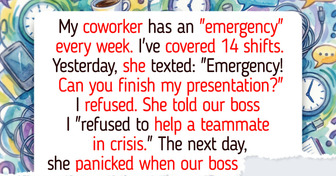cool article ☺️
How Nightmares Actually Protect Us and 10 More Dream Facts From Scientists

We spend roughly a third of our lives sleeping, and whether we remember it or not, all of us dream every single night. But what’s even more interesting is that we only partially comprehend the purpose of our dreams or what they mean exactly.
We at Bright Side dug out 10 scientific facts that will hopefully help you improve your understanding of dreams.
1. Bad dreams protect us in real life.
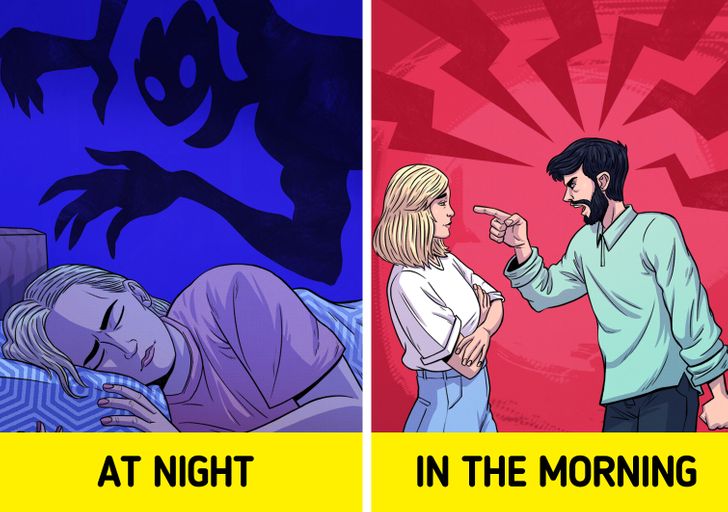
Most of us have had bad dreams at some point in our lives, and while they seem scary, there’s actually a good side to having bad dreams. Researchers claim that feeling afraid and scared in your dreams can actually help you better cope with fear during waking hours.
Bad dreams boost our brain’s ability to respond to real-life dangers and frightening experiences. However, in those dreams that are extensively terrifying and traumatic, the benefits are lost and they can actually have a bad impact that continues after waking up.
2. Most of your muscles become paralyzed during REM sleep.
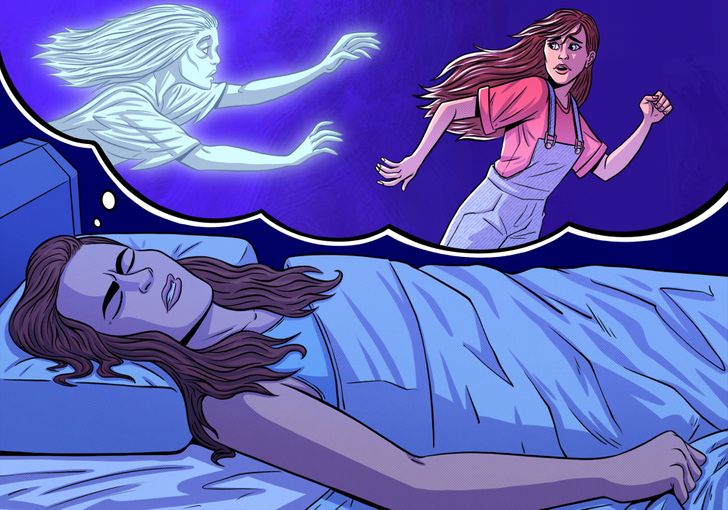
During deep REM sleep, which is the stage of our sleep where most dreams occur, our eyes continue to move but our muscles are in a state of paralysis. According to a study, a set of specialized cells in our brain called motor neurons prevents our muscles from moving while we sleep in order to prevent potential injury.
3. Dreams improve creativity and problem-solving.
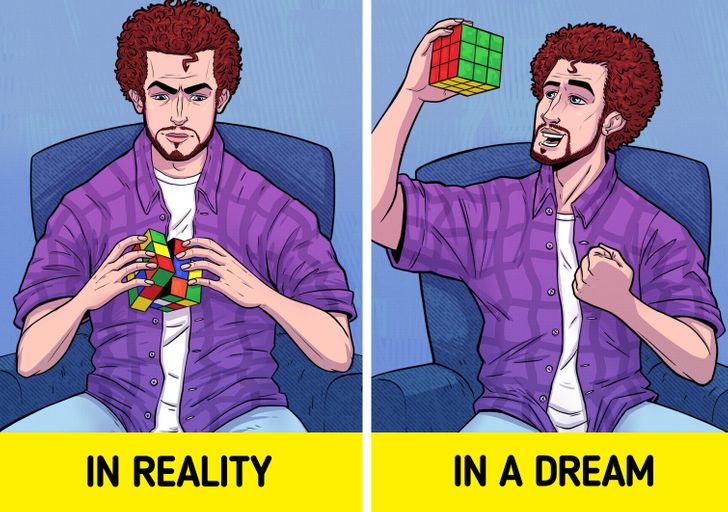
Many people have had astounding breakthroughs in their dreams. Whether it is a scientific, art, music, novel, or movie idea, we know for a fact that dreams can produce real gems, and there’s a perfectly logical scientifically-backed reason for it.
When we dream, our brain is in a different neurophysiological state which allows it to become more adept at resolving problems and finding solutions to things that have our waking minds stuck. And in this state, we experience higher brain activity, which in return makes our brains more apt to provide creative and problem-solving solutions.
4. People forget up to 95% of their dreams.
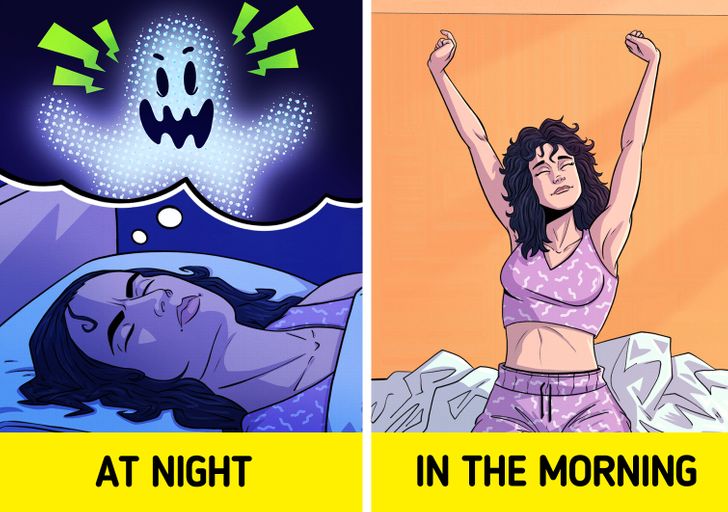
We all know how difficult it can be to recall our dreams after waking up, not to mention remembering older dreams from weeks, months, or years ago. In reality, we forget as much as 95% of our dreams, and this is due to the fact that the changes in the brain that occur when we sleep do not support the information processing needed to store and form memories.
Brain scans of people who are asleep have shown that the area which plays a vital role in memory formation, found in the frontal lobe, is inactive during REM sleep. And given that this is the stage where dreams occur, it is clear why we are unable to remember our dreams after waking up.
5. Not everyone dreams in color.

Even though it may sound surprising, not everyone can see colors in their dreams. This phenomenon goes back to the 1940s when apparently many people reported they dreamt in black and white. Today, studies suggest that this had to do with the fact that in those times people were exposed to black-and-white media because colored TV was not yet invented.
To support this theory, a study was performed on 2 different age groups with different media exposure experiences. Those who were exposed more to black-and-white media had more greyish dreams than those who had more experience with colored mediums.
6. Blind people can have visual dreams too.
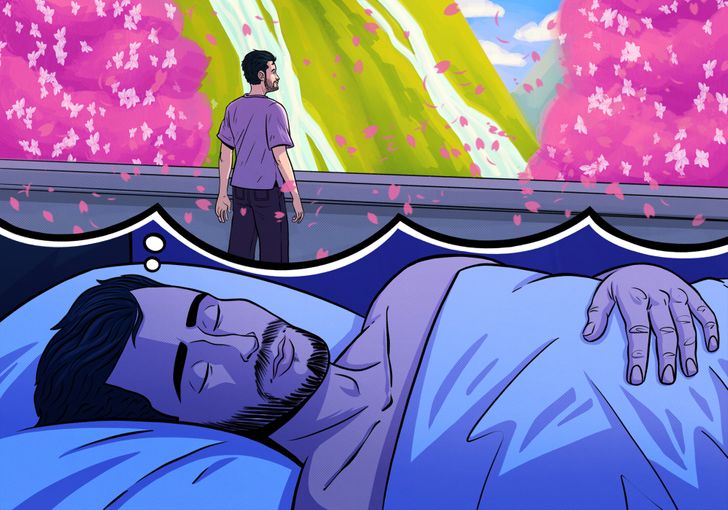
People who were born blind can have visual experiences in their dreams as they have the same electrical activity in the brain as people with normal eyesight. Still, even though they have visual sensations in their dreams, they can’t describe the experience and conceptualize the feeling as they haven’t experienced sight in their lives.
However, blind people who were born with functioning eyesight and later became blind in life can experience visual dreams. Dreams are prompted by memories, so people who have lost their vision later in life are able to experience visual dreams thanks to the brain circuits that were formed before they became blind.
7. You probably can’t read in your dreams.
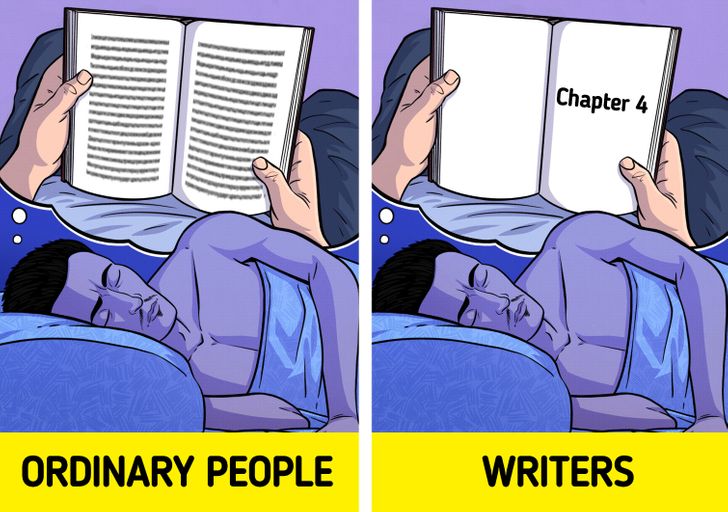
When we’re reading, this is when the right part of our brain is most activate, and this is exactly the side of the brain that can’t be reached when we’re dreaming. In fact, when we dream, the entire area of the brain responsible for language, reading, writing, and speaking is less active.
Still, there is an exception to this rule, and some people can read in their dreams. However, this applies only to a small number of people — usually those who think about language and writing the most, like writers and poets.
8. We only dream about faces we’ve seen in real life.
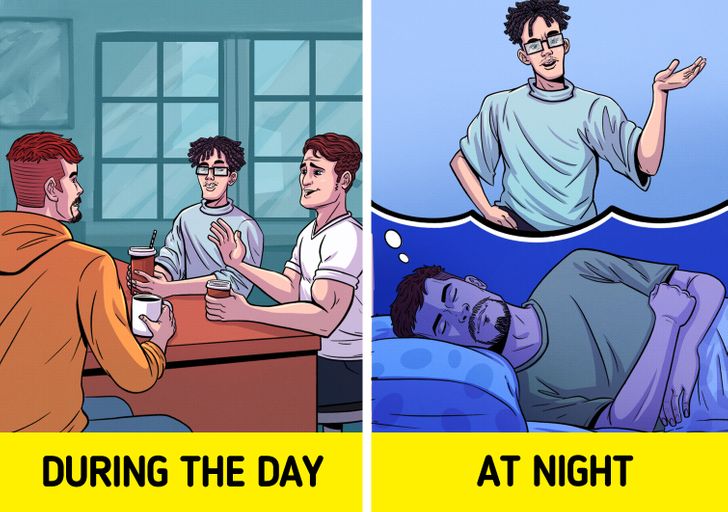
Whether you actually remember them or not, you can only dream of faces you’ve seen in the past. Our dreams are drawn from real-life experiences, so the faces you see in your dreams are the result of your interpretation of already existing real experiences.
9. Daydreaming is a real phenomenon.

We all catch ourselves drifting away with our minds and not being completely in the present moment, and virtually everyone has experienced this. However, daydreaming, in the real sense of the world is possible for some people that possess the ability to daydream in such a vivid manner that they virtually experience their presence in another environment.
10. You can control your dreams.
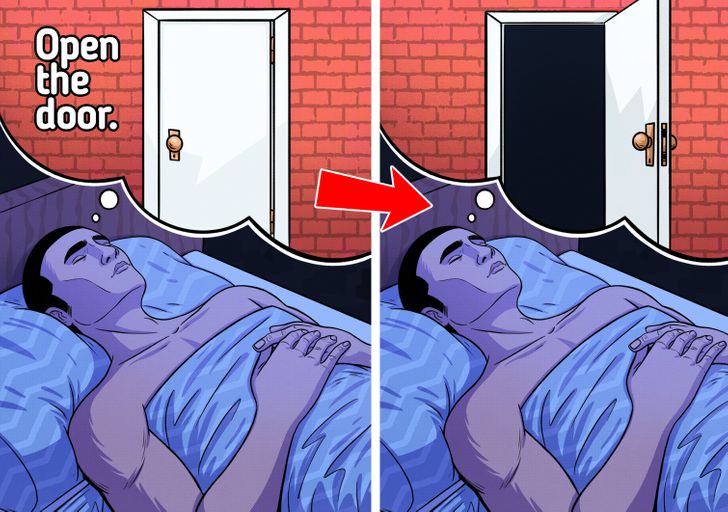
By experiencing lucid dreams, you can literally be aware that you are dreaming and thus control your dreams. This type of dreaming is linked to a higher awareness of your mental state, and people who have experienced lucid dreams claim that they were aware that they were dreaming upon awakening.
Which of these facts about dreams amused you the most? Let us know in the comment section.
Comments
I always take it from this perspective - if I had a bad dream then all the negativity went away with it and the day will turn good :)
once I had nightmares almost every night for a month straight, it was very exhausting and I had no mood for the rest of the day
well.. this might indicate some underlying anxiety or so 😥
I sometimes have dreams when I need to calculate or read something, and I always get very concentrated on this thing, and really try to do it, but I still can't
at one moment I wake up because I can't manage to recognize the numbers or letters
I am Lucid Dreamer... Any lucid dreamers here?🙄
To varying degrees, yes. Rarely fully lucid, but often a kind of background control, like a part of me is directing, and a part of me is in the dream. Although once I told a person in my dream that they were simply as aspect of my subconscious 😆
How to lucid dream? I'm a student and write books in my free time, lately I'm lacking some inspiration. I'm hoping to find it in my dreams...
Umm, I don't think its quite something that you could do on purpose. It comes naturally. At least, you and I share the love of writing!
Where you stuck at? Maybe I could help you in some way...
Oo wow
Me! I always lucid dream
What a cute ghost in number four 👻
I can dream a few minutes after waking up conscious
Related Reads
Psychologists Explain Things We All See in Dreams, and It’s Better Not to Ignore Them

8 Subtle Signs of Fake Love

19 Truthful Comics About How Differently Moms and Dads Raise Their Children
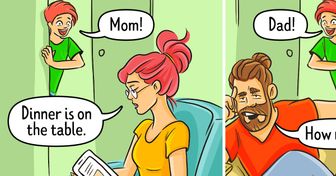
15 People Who Discovered a Disturbing Reality

20+ Red Carpet Dresses That Made Us Lose Our Minds Once We Saw Their Backs

9 Pregnancy Do’s and Don’ts That’ll Help You Have a Healthy and Bright Child

17 Breakup Stories That Prove the Best Revenge Is Living Well

My Boss Denied My Vacation for My Own Brother’s Wedding—So My Revenge Was Cold and Calculated

I Refuse to Forgive My Wife for What She Did to My Son

10 Travelers Who Took “Breaking the Rules” Way Too Far

I Refused to Expose My Salary to My Parents, Now My Life Is Falling Apart

My Coworker Tried to Humiliate Me to Our Boss—I Had the Perfect Receipts
